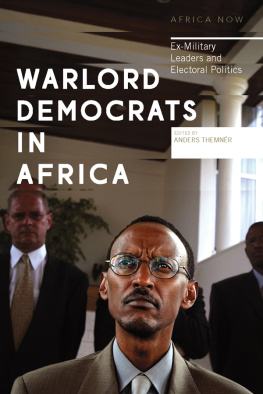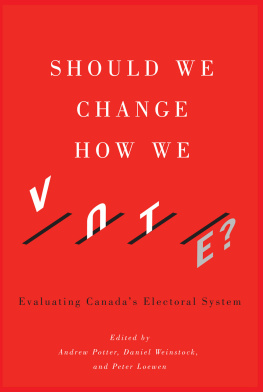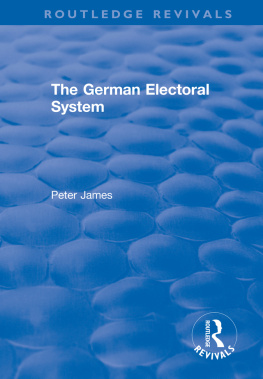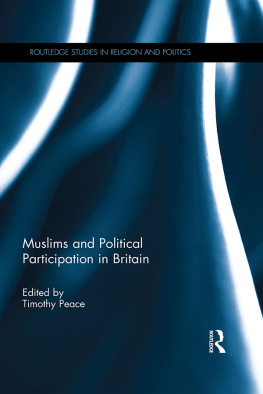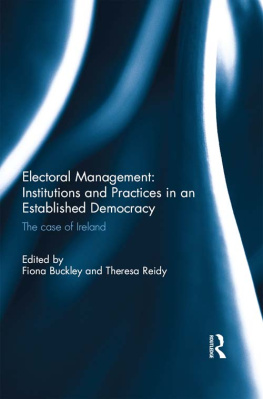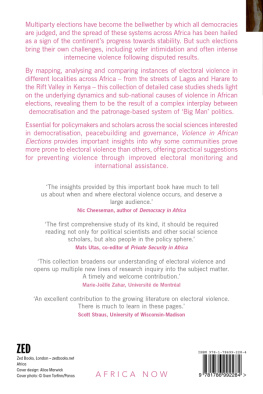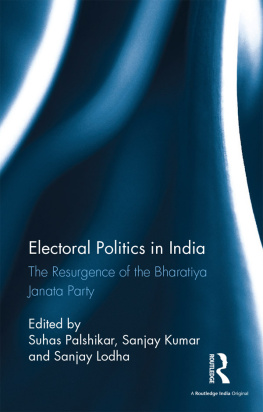More praise for Warlord Democrats
A major work. This book tells us exactly how and why wartime leaders play significant roles in post-war politics. Extremely insightful and clear, it is likely to spur a new research programme in the study of post-conflict politics and state-building. It should be widely read.
William Reno, Northwestern University
An excellent collection of essays. The political economy analysis it offers should be of particular interest to those quite especially the UN and those charged with running its peace operations trying to build peace and secure durable political settlements to long-running conflicts.
Mats Berdal, Kings College London
Africa Now
Africa Now is published by Zed Books in association with the internationally respected Nordic Africa Institute. Featuring high-quality, cutting-edge research from leading academics, the series addresses the big issues confronting Africa today. Accessible but in-depth, and wide-ranging in its scope, Africa Now engages with the critical political, economic, sociological and development debates affecting the continent, shedding new light on pressing concerns.
Nordic Africa Institute
The Nordic Africa Institute (Nordiska Afrikainstitutet) is a centre for research, documentation and information on modern Africa. Based in Uppsala, Sweden, the Institute is dedicated to providing timely, critical and alternative research and analysis of Africa and to co-operation with African researchers. As a hub and a meeting place for a growing field of research and analysis the Institute strives to put knowledge of African issues within reach for scholars, policy makers, politicians, media, students and the general public.
www.nai.uu.se
Forthcoming titles
Paul Higate and Mats Utas (eds), Private Security in Africa
Mimmi Sderberg Kovacs and Jesper Bjarnesen (eds), Violence in African Elections
Atakilte Beyene (ed.), Agricultural Transformation in Ethiopia
Titles already published
Fantu Cheru and Cyril Obi (eds), The Rise of China and India in Africa
Ilda Lindell (ed.), Africas Informal Workers
Iman Hashim and Dorte Thorsen, Child Migration in Africa
Prosper B. Matondi, Kjell Havnevik and Atakilte Beyene (eds), Biofuels, Land Grabbing and Food Security in Africa
Cyril Obi and Siri Aas Rustad (eds), Oil and Insurgency in the Niger Delta
Mats Utas (ed.), African Conflicts and Informal Power
Prosper B. Matondi, Zimbabwes Fast Track Land Reform
Maria Eriksson Baaz and Maria Stern, Sexual Violence as a Weapon of War?
Fantu Cheru and Renu Modi (eds), Agricultural Development and Food Security in Africa
Amanda Hammar (ed.), Displacement Economies in Africa
Mary Njeri Kinyanjui, Women and the Informal Economy in Urban Africa
Liisa Laakso and Petri Hautaniemi (eds), Diasporas, Development and Peacemaking in the Horn of Africa
Margaret Lee, Africas World Trade
Godwin R. Murunga, Duncan Okello and Anders Sjgren (eds), Kenya: The Struggle for a New Constitutional Order
Lisa kesson and Maria Eriksson Baaz (eds), Africas Return Migrants
Thiven Reddy, South Africa: Settler Colonialism and the Failures of Liberal Democracy
Cedric de Coning, Linna Gelot and John Karlsrud (eds), The Future of African Peace Operations
Tobias Hagmann and Filip Reyntjens (eds), Aid and Authoritarianism in Africa
Henning Melber, The Rise of Africas Middle Class
Warlord Democrats in Africa: Ex-Military Leaders and Electoral Politics was first published in 2017 by Zed Books Ltd, The Foundry, 17 Oval Way, London SE11 5RR, UK
www.zedbooks.net
Editorial copyright Anders Themnr 2017
Copyright in this collection Zed Books 2017
The right of Anders Themnr to be identified as the author of this work have been asserted by him in accordance with the Copyright, Designs and Patents Act, 1988
Typeset in Minion Pro by seagulls.net
Index: Ed Emery
Cover design: Alice Marwick
Cover photo Sven Torfinn/Panos
All rights reserved. No part of this publication may be reproduced, stored in a retrieval system or transmitted in any form or by any means, electronic, mechanical, photocopying or otherwise, without the prior permission of Zed Books Ltd.
A catalogue record for this book is available from the British Library
ISBN 978-1-78360-249-0 hb
ISBN 978-1-78360-248-3 pb
ISBN 978-1-78360-250-6 pdf
ISBN 978-1-78360-251-3 epub
ISBN 978-1-78360-252-0 mobi
Acknowledgements
This volume grew out of a rich and stimulating research environment at the Nordic Africa Institute (NAI), and particularly its Conflict Cluster. It was through constant discussions about Big Men, informalities, post-civil war dynamics and processes of democratization that the idea for analyzing warlord democrats as electoral navigators developed. For this reason, I am eternally grateful to colleagues such as Maria Eriksson Baaz, Linna Gelot, Ilmari Kihk, Maria Malmstrm, Anders Sjgren and Mimmi Sderberg Kovacs. I am particularly indebted to Mats Utas for introducing the Big Man framework to me and for constantly pushing me to look beyond my positivist inclinations. In a similar vein, I also want extend my appreciation to the current and former directors of NAI, Iina Soiri and Carin Norberg, as well as NAIs head of research, Victor Adetula, who have supported the process throughout. I would also like to express my gratitude to my other workplace the Department of Peace and Conflict Research (DPCR) at Uppsala University. It has been a luxury to have DPCR as an alternative source of inspiration. From some of the brightest scholars on the dynamics of war and peace I have received insights about how, in a systematic manner, to try to capture, compare and analyze something as fluid and ambiguous as individual agency in a largely informal setting.
The book began to take shape in September 2012, with the organization of a two-day workshop entitled Warlord Democrats: Agents of Change or Instigators of Insecurity? During the workshop, a number of scholars and practitioners were present who are not part of this book. These individuals did, however, undoubtedly infuse valuable ideas and perspectives into the project. I therefore owe thanks to Bola Amoke Awotide, Maria Eriksson Baaz, Tumba Tuseku Diuedonn, Nura Jibo, Trice Kabundi, Maria Malmstrm, Carin Norberg, Daniel Poon, Koko Sadiki, Pierre Schori, Anders Sjgren, Roxanna Sjstedt, Ari Baghdassar Tatian, James Tar Tsaaior and Mats Utas. This workshop could not have been organized without the generous economic support of the Swedish International Development Cooperation Agency (Sida) and the organizational assistance of NAI. We are truly indebted to both organizations. From the latter, I particularly want to mention Ingrid Andersson, whose administrative expertise made all the difference.

